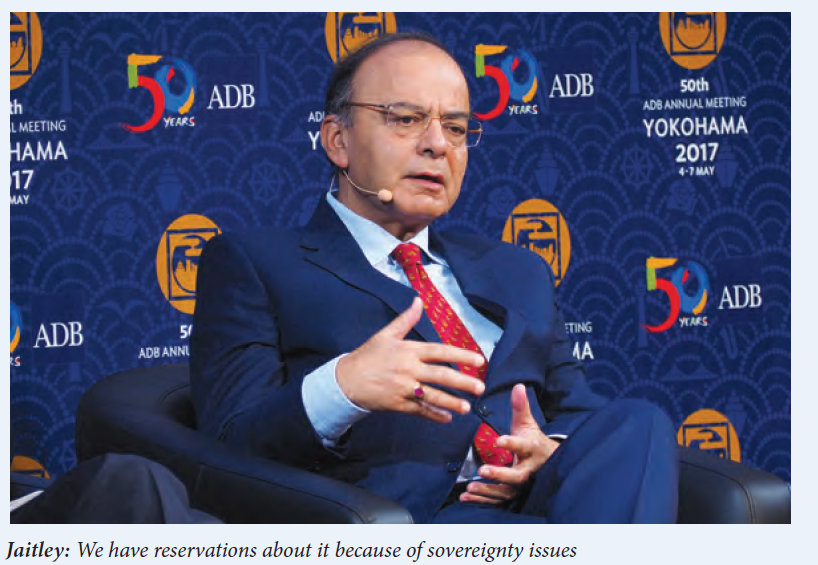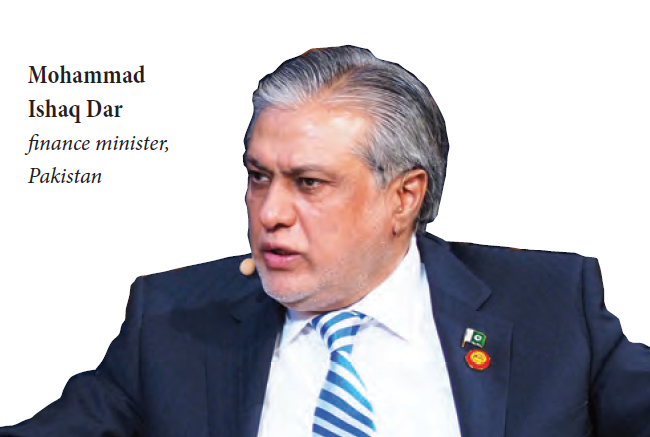The recent Silk Road Forum in Beijing, which attracted leaders from around the world, marked a significant win for the four-year old initiative. While participating countries agreed to ramp up infrastructure development and meet again in 2019 there was one key member from the Asian community that was noticeably absent – India
 Since the Belt and Road initiative was launched, India has been on the sidelines of the economic policy aimed at revitalizing the ancient Silk Road. The country has cited a number of issues with the policy. Firstly, the Indian government is strongly opposed to China and rival Pakistan’s US$50 billion China-Pakistan Economic Corridor (CPEC) agreement, which cuts through the disputed area of Kashmir where India claims sovereignty. Officially announced in 2015, CPEC involves building a series of roads and highways that eventually connect the Western Chinese province of Xinjiang to the port of Gwadar along the Indian Ocean.
Since the Belt and Road initiative was launched, India has been on the sidelines of the economic policy aimed at revitalizing the ancient Silk Road. The country has cited a number of issues with the policy. Firstly, the Indian government is strongly opposed to China and rival Pakistan’s US$50 billion China-Pakistan Economic Corridor (CPEC) agreement, which cuts through the disputed area of Kashmir where India claims sovereignty. Officially announced in 2015, CPEC involves building a series of roads and highways that eventually connect the Western Chinese province of Xinjiang to the port of Gwadar along the Indian Ocean.At the recent Asian Development Bank annual meeting in Yokohama, the finance ministers from both Pakistan and India expressed disagreements over the Belt and Road plan. “We have reservations about it because of sovereignty issues. In principle, it’s a good idea,” stated Arjun Jaitley, India finance minister, at the meeting. In contrast, Mohammad Ishaq Dar, finance minister of Pakistan said, “I think connectivity is very essential. We strongly support the One Belt, One Road. It’s a positive direction to connect the region and beyond.”
Secondly, India is wary of Chinese incursion into its sphere of influence. From Bangladesh to Sri Lanka and the Maldives, Chinese capital has played a role in infrastructure development. Last October, Chinese President Xi Jinping visited Bangladesh, paving the way for a US$1.6 billion power deal between China’s TBEA and Bangladeshi Dhaka Power. Moreover, at the Nepalese Investment Summit held earlier this year Chinese firms pledged to invest US$8.3 billion into the country, a leap from the US$317 million committed from India at the same forum.
 Lastly, India has raised concerns over the quality of deals being undertaken. The Indian government released this statement during the Silk Road Forum: “Connectivity initiatives must follow principles of financial responsibility to avoid projects that would create unsustainable debt burden for communities; balanced ecological and environmental protection and preservation standards; transparent assessment of project costs; and skill and technology transfer to help long-term running and maintenance of the assets created by local communities.”
Lastly, India has raised concerns over the quality of deals being undertaken. The Indian government released this statement during the Silk Road Forum: “Connectivity initiatives must follow principles of financial responsibility to avoid projects that would create unsustainable debt burden for communities; balanced ecological and environmental protection and preservation standards; transparent assessment of project costs; and skill and technology transfer to help long-term running and maintenance of the assets created by local communities.”Already, there has been concerns about debt owed to China by Sri Lanka estimated at about US$8 billion.
Though India is at risk of losing out to regional peers that stand to benefit from the Belt and Road, the country has been pushing its own regional infrastructure projects under the Bay of Bengal Initiative for Multi-Sectoral Technical and Economic Cooperation. For now, the South Asian region is one of the least economically integrated regions in the world, enduring high transport costs, protectionist policies and political tensions.





.jpg)
.jpg)


